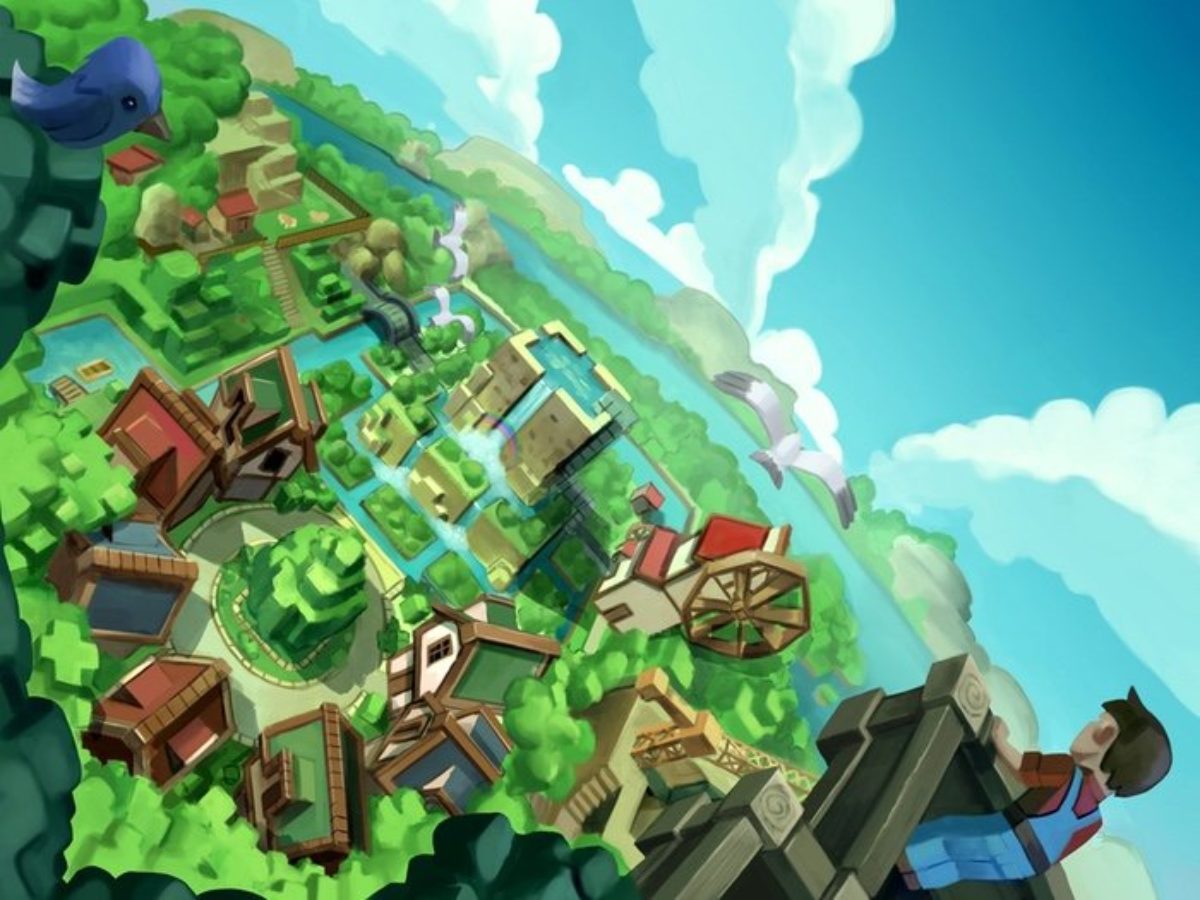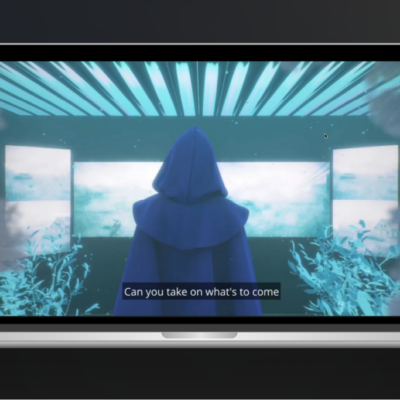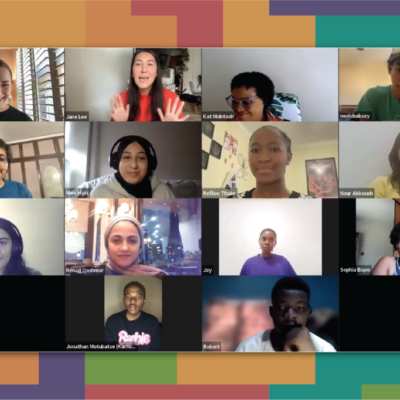
John Krajewski, "Eco" Developer, On Play that Saves the World
It's almost Earth Day, folks. To celebrate, get out there and hug a tree, join your local March for Science, then settle in and play Eco, Strange Loop Games' award-winning online, multiplayer survival sim.
Eco calls on players to work together on a shared server to tackle only the most pressing dilemma of our era: How do we save the world...from ourselves? Players work within a simulated ecosystem to develop the technology to prevent a catastrophic meteor strike without dismantling that ecosystem in the process. Players collect natural resources to build things and drive an economy, analyze data to make projections (At this hunting rate, when will the elk go extinct?), and work together to enact laws to protect vulnerable populations.
Eco brings the consequences of resource mismanagement into sharp relief, especially for those of us who haven't (yet) experienced them in drastic ways in the real world. Eco players have to confront the conflict between individual wants and collective needs (Isn't my mansion awesome? Oh, wait, where'd all the trees go?). This design encourages a mindset oriented towards the common good. Case in point: When considering how much to "charge" other players to use his in-game crafting table, Eco game reviewer The 8-Bit Ninja sets a generous rate, musing, "Everybody should have access to crafting. That's, like, a basic human right." Well said.
So, how does John Krajewski, founding CEO of Eco studio Strange Loop Games, approach designing a game that relies so much on players' self-awareness, cooperation, and empathy? He was kind enough to share some gems based on his experience developing this fantastic multiplayer sim.
MB: People sometimes describe Eco as a game about saving the environment. You've said that Eco is actually, first, about creating a civilization and, second, about the wise use of natural resources. Can you talk about why you took that approach?
JK: I believe it's more powerful as a secondary goal. You give this player a rich system where they have things they want to do unrelated to "saving the environment," but through pursuing those goals they begin to see the importance of the ecosystem and the world around them. Letting players realize that, rather than beating them over the head with the message, is much more powerful. The game is still in early stages, but it's great to see discussions among players about what should be allowed in the world, and all the different opinions that people weigh in with. They're really looking at the wider view and working to understand other people's perspectives. Debating your point with other players with vastly different specialties and immediate goals is challenging and a key aspect of the game.
MB: In terms of a game design approach, what's the difference between requiring cooperation and creating a world in which players want to cooperate? How does Eco encourage authentic cooperation?
JK: In Eco there's nothing forcing you to cooperate, but you'll be a lot more effective if you do. It's rewarding both in gameplay terms and personal terms. We allow a big range of cooperation in the game, from asynchronous interactions in the economy (buying at your store) to sharing property and building together. Since the game is all about social institutions, the relationships you form and how you interact with other players is a key mechanic to the game.
MB: What role does a player's social intelligence play in a "social sim" like Eco?
JK: With the game focused on social institutions like governments and economies, social intelligence becomes a huge advantage. It's all real people you're dealing with in Eco, trying to hash out the best way forward based on simulation data and the history of events in the game. This is a mechanic that's a great fit for many games, giving players responsibility for a world and challenging them to solve problems that require consensus (in a world where players naturally have very different viewpoints and goals). Our goal is to use this similar structure for many subjects, building on the Eco engine.
MB: Was one goal for Eco to help players feel empathy for the needs of other species? If so, what are some specific design choices that you used to trigger empathy?
JK: Yes, you're existing in their world, in a natural, beautiful place that they thrive in. You need to take from that environment to survive and succeed, but you can easily kill off that beauty if you're not conscious of what you're doing. There's an instant connection when something is vulnerable, you're connected to it and take on responsibility for it.
MB: How might playing Eco in middle school (where it's been embedded into classroom instruction) impact players' longer-term environmental awareness?
JK: When you're growing up, your world can seem a lot smaller than it really is. The concept of something that happens on such a vast scale of space and time as climate change is nearly impossible to imagine when you have this tiny vision into the world that you barely recognize is tiny. Our goal with Eco as a game is to shrink down that vastness of time and space, let them experience in the game world, among their peers, over the course of 30 days, an analogy to what happens in our massive world, among billions, over hundreds of years. It gives you a view and experience that you don't get otherwise, but is very relevant to the challenges we face now. Widening a person's viewpoint at that age is especially powerful.
MB: What are the most important things for game developers to consider when creating fun games that also encourage critical skill-building for teens (and adults!), like cooperation, empathy, and social awareness?
JK: It's important to think about the kind of social landscape you're building. What are the types of interactions that will take place in the world you've designed? How do you keep those positive and/or challenging? What are the hidden incentives of your structures? It's surprisingly easy to incentivize the opposite of what you intend. Multiplayer is so key to these skills as well, and so much more powerful than simulated interactions. With games so ubiquitous, there's lots of opportunity for connecting real players.
MB: Do you feel that in Eco you succeeded in making a game that does entertainment and education equally well? What advice would you give other game developers who have this goal?
JK: We've got a good start! With a successful Kickstarter and strong Early Access sales on our website, we're confident it will continue to do well in the entertainment market. My advice for games that merge education and entertainment is you really have to have a love and appreciation for the subject first, and see the beauty of it. If you approach it from the angle of, "We'll trick them into doing this classwork by wrapping points and leaderboard and gameplay elements around it," you're not going to create anything useful. Respect the medium of games, understand how fundamentally different (and I would argue more powerful) it is compared to traditional schoolwork, and integrate the learning deeply into the game. Whatever you're learning in a game shouldn't be the obstacle you need to get past to succeed. It should be what lets you succeed. The education subject should be your sword, not your boss monster. (Author note: is John quotable, or what?!)
MB: What's the best way for teens (and people of any age) to access and play Eco now?
JK: You can join our alpha build now at strangeloopgames.com/eco. We also have dev tier packs where we share the source code with players.
MB: Thank you, John!
JK: My pleasure!
Hear more from John on how Eco helps players feel meaningfully connected to the beautiful world his team created:

